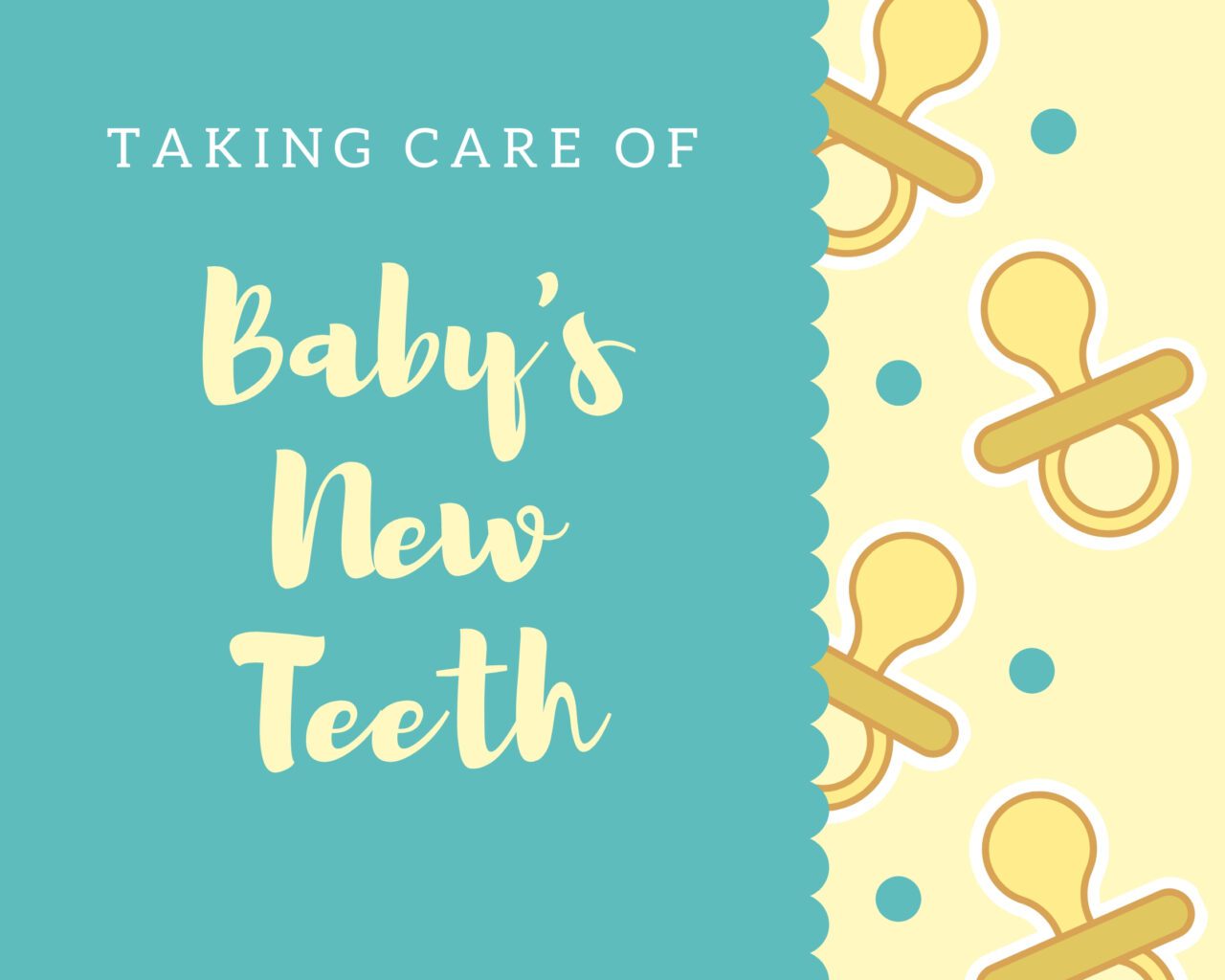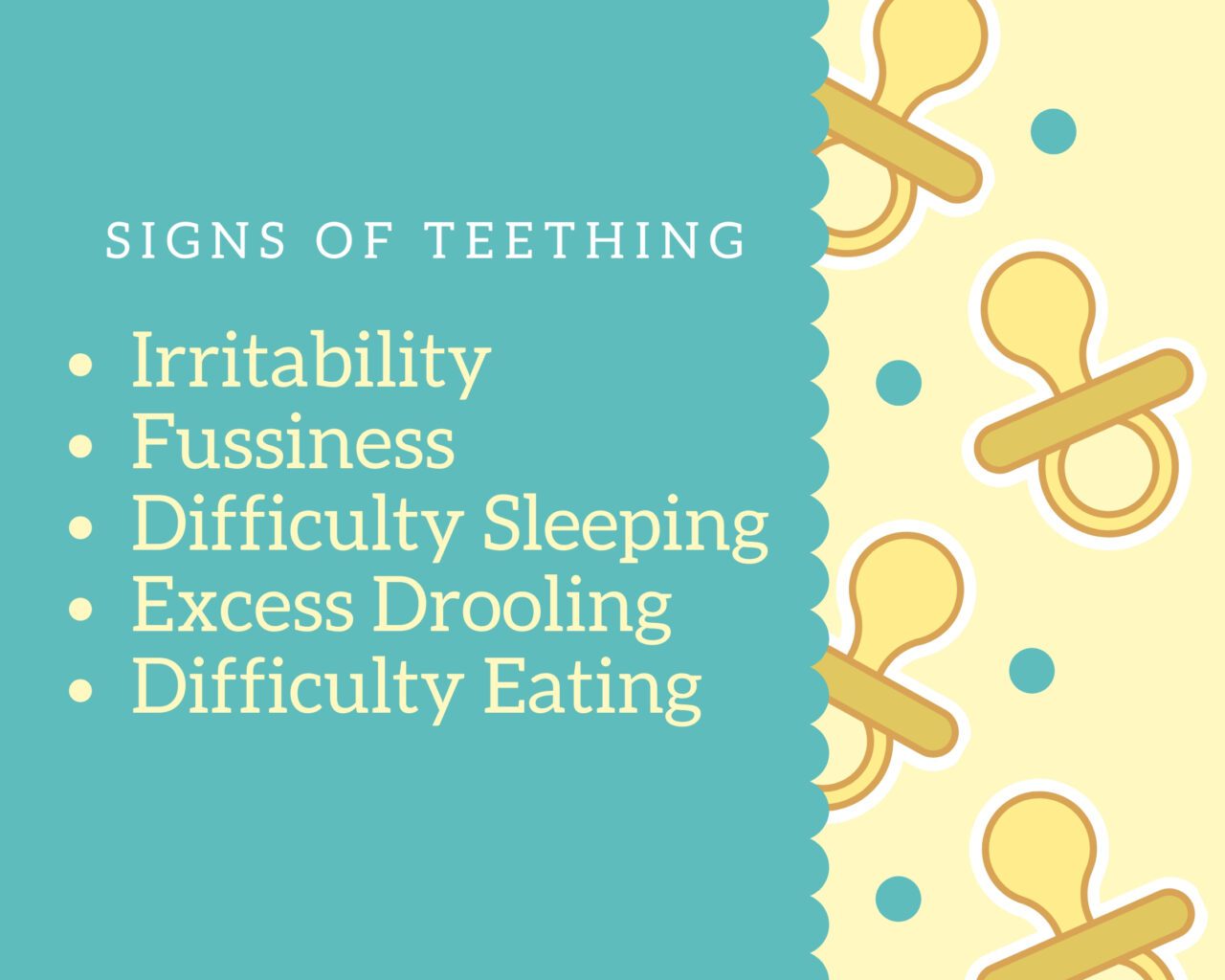What You Need To Know About Teething
During your baby’s first year of life, you will watch and help her go through many changes — building muscles, learning to walk and talk, adjusting to solid foods. Most of these changes are exciting and fun to watch and experience. Teething, however, can be a different story. Not all babies experience the same levels of discomfort as their teeth come in. But it’s never easy to see your little one in pain.

When Does Teething Start?
There’s no guarantee on when exactly your newborn will begin teething or the discomfort that sometimes comes with it. For most babies, teeth will come in between six and 12 months.
Usually, the first little teeth to appear in your baby’s mouth will be the lower front teeth, followed by the top front teeth. Most children have all their baby teeth by the time they’re three years old.
It’s typically easy to tell when your baby is hurting. But these are the symptoms of teething:
- Irritability
- Fussiness
- Difficulty Sleeping
- Excess Drooling
- Difficulty Eating

Teething can sometimes cause a baby’s temperature to rise a bit, which is normal and doesn’t always mean something is wrong. Studies have found that any temperatures over 100 degrees Fahrenheit are not teething-related and are most likely caused by another illness.
Before your baby starts showing signs of teething, you can help develop a teeth-cleaning regimen by using a clean cloth to gently wipe away leftover milk from your baby’s gums after feedings. The pressure on the gums can help reduce future teething discomfort and can later make tooth brushing a little easier.
How Can You Soothe A Teething Baby?
Massage your baby’s gums. With a clean finger or a small, chilled spoon, gently rub the areas of your newborn’s gums where the teeth are trying to come through.
Buy a mesh feeder to give your baby chilled fruits. Babies who have adjusted to solid foods, around six months old, can have chilled, mashed fruits like apples, bananas, and pears in a mesh feeder that will help with teething pain.
Give your baby teething toys. Most stores with a baby section will have lots of options for teething rings and other toys that you can chill and let your little one chew on. Be sure to avoid using toys that are liquid or gel-filled. Also, remember to wash baby’s teething toys often.
Clean up the extra drool. Your little one is going to drool a lot while his teeth are coming in. Try to keep his face clean by wiping away the excess drool to prevent irritation or rash, but not so often that more irritation is created.
Give your baby lots of extra love. Cuddling and rocking your baby might relax or distract her — and you — while she’s in pain.
With your pediatrician’s blessing, you can give your baby small doses of pain reliever like acetaminophen when other soothing methods aren’t working so well. Children over six months old can also have ibuprofen. Check with your pediatrician first to make sure you give your newborn an appropriate dose based on age and weight.
Stay away from teething tablets that contain belladonna and benzocaine, which are marketed as pain-relieving, because they can be potentially harmful to your baby.
How Do You Take Care of Baby Teeth?
Take your baby to the dentist. As soon as his first tooth pops through, schedule your baby’s first dental appointment. According to the American Dental Association, it’s important that your baby starts seeing a dentist regularly and early to adjust to the visits and the dentist can keep an eye on tooth development. You can take your little one to a pediatric dentist or a regular dentist who is comfortable seeing young children.
Add fluoride to your baby’s diet at six months. Fluoride is usually in tap water, so when your baby starts eating solid foods, give her small amounts of tap water as well. Fluoride is good for enamel build-up and developing strong, healthy teeth.
Brush those little teeth. Using a baby-size toothbrush, gently brush your baby’s teeth twice a day. When your child reaches age three, the ADA recommends using a pea-size amount of toothpaste on a child-size brush. Keep an eye on your little one while they brush until they’re about seven years old to make sure they’re learning to brush thoroughly and correctly.
Good oral hygiene even for baby teeth that will eventually come out is extremely important. Baby teeth that are lost too early can make it difficult for adult teeth to come in, which could lead to other dental problems down the road. Keep an eye on your little one’s growing teeth and keep in contact with your pediatrician or dentist for any concerns.




